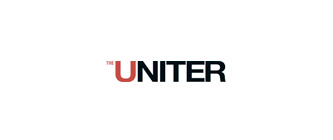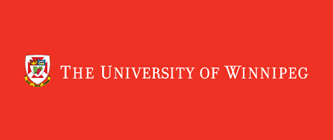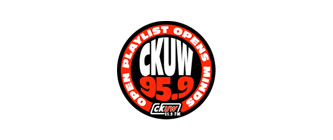Past Initiatives
Discord is an easy, low-barrier way for students to connect with each other while remotely learning. Discord servers are organized into topic-based channels where students can share, talk on the voice channels, chat, and hang out with each other within certain departments and sub-communities ranging from student groups to gaming!
The proposed language of Bill 33 challenges the autonomy of student associations and post-secondary education institutions by giving the provincial government control over student fees that fund essential student services like healthcare, transit, daycares, foodbanks, campus media, academic advocacy and more.
Funding cuts to university grants could also lead to university faculty and administration reductions, limited services, and higher tuition fees for students.
Was previously Divestment. Truth and Growth is a UWSA Environmental Justice Movement, for students, by students.
Mission: To facilitate and empower Environmental Justice in our communities and beyond by exposing, learning and challenging the university’s position and of each other to the way we relate to our ecosystems.
Environmental injustices impact us in a holistic spectrum of realities and are interconnected to everything we do and touch as active participants of our environment. Environmental injustices build systemic barriers and destructive practices; the Truth and Growth Campaign nurtures a fluidity of stream that aims to assert our holistic relationship to the environment and develop new ways to move with and within it.
Take Note is a series of events centered around sharing stories of gender-based violence. We hope to highlight lived experiences of resilience, survival and healing. We ask what it means for individuals and systems to be accountable and what we can do to shift dominant narratives about gender-based violence.
Divestment is an international movement for institutions like universities, churches, and pension funds to withdraw their investments from fossil fuel companies. The University of Winnipeg Foundation has millions invested in the fossil fuel sector. Alongside a coalition of student groups and faculty, the UWSA is calling on our university to become the first institution in Manitoba to fully divest. In 2020 Shawna Péloquin (2020/21 UWSA President) rebranded and recreated the divestment movement to Truth and Growth. Click here to learn more about Truth and Growth.
Fight Against Bill 31
In 2017/18, the UWSA worked on a campaign against Bill 31. Despite strong student opposition, Bill 31 was passed which led to increased tuition costs. Click here to see our press release regarding tuition hikes. Your VPEA is currently working on Textbroke, a campaign to make education more accessible by advocating for free or Open Access Resources. Click here to learn more about Textbroke.
Fall Reading Week
The University of Winnipeg had its first Fall Reading Week in October 2016. Your students’ association worked hard to make this a reality, and we’re so happy to see it materialize! Click here to read more about the introduction of Fall Reading Week.
Inclusive Gym Initiative
From 2016-18, the UWSA worked on a campaign to make the UWinnipeg Gym more inclusive for women, non-binary people, and other marginalized students that have expressed that they do not feel comfortable using UW’s fitness facilities. In January 2017, the University announced they would run a pilot project from September–December 2017 offering specific gym time to women and non-binary students (Read the full article here). Currently, UW Recreation Services are making changes with the UWSA student survey findings in mind. The goal is to make all students feel welcome and comfortable accessing fitness programming and spaces. Please contact Recreation Services for more information and updates. To learn more about the Inclusive Gym Initiative, click here.
Indigenous Course Requirement
UWinnipeg is one of the first universities in the country to mandate that all students have a baseline knowledge about Indigenous people and culture. Approved in November 2015 by the University’s Senate, the new Indigenous Course Requirement (ICR) makes Indigenous learning part of the undergraduate degree requirements for all new UWinnipeg students, beginning in the fall of 2016.
This initiative has been student led. The University of Winnipeg Students Association came forward with a proposal for an Indigenous Course requirement. This proposal has been the site of informal and formal discussion and debate at The University of Winnipeg among students, faculty and staff, and community members. These discussions helped to formulate the criteria being used to assess courses.
This decision exemplifies the University’s leadership in responding to the recommendations made in the final report of the Truth and Reconciliation Commission (TRC), while its spirit epitomizes the diversity-minded approach of the UWinnipeg community and its commitment to leading Indigenous inclusion. Click here to learn more about the ICR and it’s background.
ReconciliACTION
ReconciliACTION was a campaign, launched by 2018-19 UWSA President – Morgan Brightnose, “to create university and college degree and diploma programs in [Indigenous] languages,” at The University of Winnipeg, in accordance to recommendation number 16 of the Truth and Reconciliation commission.
Textbroke was a campaign that took place in 2017-2019 to advocate for free and open access to textbooks.
Open Educational Resources are free and accessible texts (like textbooks and course content) that are openly licensed. These texts can be shared, updated, localized and used several ways. They are peer reviewed, and written by experts in the subject areas, but unlike standard textbooks, they can be continually modified, remixed, and kept up to date.
Despite having many benefits, only three courses in the University of Winnipeg have adopted open textbooks. An increase in OER adoptions at UWinnipeg will make education more affordable and hence, more accessible.


